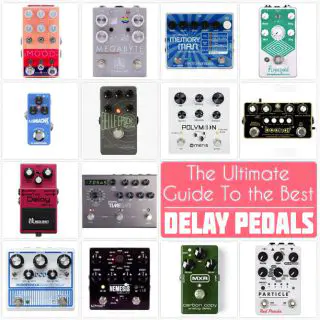To the aspiring rock-star who is blissfully unfamiliar with the recording studio, music is undoubtedly a lot of fun – until the idea of recording materializes. This natural transition from a general and “liquid” perception of a live sound to a “solid” and set in stone recording often proves to be an unexpectedly serious benchmark.
To complicate things further, today’s rapid diffusion of home recording gear is giving artists many options for recording their music and, as a consequence, musicians often seem quite confused about how to approach this essential stage of their career.
Start Saving
Even though the DIY route is becoming more and more widespread, many artists seem to realize that delegating the process to a sound engineer or a producer might yield more productive – albeit more expensive – results. Unfortunately, said artists usually arrive at this painful realization after a few attempts at recording on their own.
The reason behind this choice in most cases can be explained with one simple word: over-involvement. It proves to be very hard and time consuming to write, arrange, perform, edit and mix a dozen songs without falling short in any of these stages or losing focus because of chronic overexposure to your own music. An external pair of “ears”, can help address issues and make crucial choices when needed, and help artists overcome situations that otherwise can undermine their confidence and inspiration.
But how do you choose the best studio and sound engineer/producer for your music?
We’ll have to start with something you don’t want to hear: your budget will be the primary “option filter.” Once you know how much money you can spend, you will know what you can afford and be ready to start shopping around.
The budget is – for any artist – the biggest limiting factor when approaching the recording stage, and even though the rule of thumb is that more expensive options normally bring more professional results, there are e few things musicians should know in order to get more out of their stretched budget.
People vs. Studios
When looking for recording options, our first advice is: don’t start looking for studios – look for people instead (a great place to start are the Deli’s Listings for Recording studios andEngineers and Producers).
What artists should try to find is – primarily – somebody who truly enjoys their music and who has experience in recording that particular genre (you can find that out by checking out the engineers’ credits and listening to their CD samplers). All sound engineers are passionate music fans: give them a project they believe in and they will go the extra mile, be more enthusiastic and dedicated, and – what you want to hear – might be available to charge less.
Ideally the producer/sound engineer should become an extra element of the band, but a selfless one: somebody who is capable of understanding the artist’s vision and develop it rather than impose his/her own. This member should be a musical person who has both the technical knowledge to lead you and your band mates through the recording process, and the ear to advise the band about issues related to song structure, songwriting, arrangement, and delivery.
Once you have found some candidates – the best ones you can afford – be very clear about your budget and ask them what they reckon can be achieved with it. What you will get at this point are options, and you better start considering all of them carefully.
Rooms
Engineers often use different studios for recording: some more expensive, some more affordable. Ask to see the rooms where they would record your songs. As a rule of thumb, be weary of small rooms with parallel walls and ones with almost cubical dimensions. Those kind of rooms should have a lot of treatment on the walls to absorb wall reflections and are probably not the ideal places to record loud and bassy instruments like drums. Bad rooms can affect the sound of your music in several ways (boominess at certain frequencies, excess of reverb, excess of harsh early reflections). Good rooms instead will give your recordings the flattering dressing of “real reverb” and avoid coloring your instrument’s tone with unwanted frequencies.
Equipment
Quality and expensive recording equipment (to a certain extent and when handled by professionals who know how to use it) contributes to better sounding recordings. But this kind of equipment is not indispensable to make great records – in particular if your band plays punk, indie rock, or lo-fi. However, cheaper equipment in the recording chain (primarily mics, mic preamps, and analog to digital converters), will give your music a less flattering quality: harshness, lack of depth and focus, and the ominous “coldness” so often associated with digital sound.
Rates
The first thing that musicians should be aware of is that the era of set studio rates is over. If spending $75 per hour for recording drums in a top-notch studio makes sense if you are after a beautiful roomy sound, there is really no point in editing those drums in the same studio at that same rate. Editing can be done pretty much anywhere with just a computer and a piece of software – I personally wouldn’t want to pay more that $30/hr for that. The same applies to recording Bass and keyboards – as they can be recorded directly through D.I.’s or hi-Z inputs. For vocals all you need is a small room properly treated, a good selection of mics and preamps to choose from – and a comfortable, homey environment.
Recording a CD involves several stages. Each one of these requires a different amount of equipment and can be done in different spaces. This is where you can start cutting corners. Ask your engineer or producer how you can maximize your budget. It’s in his/her interest to help you get the best possible recordings with what you can afford to pay.
Mixing
The final stage of the process – mixing – is often the most delicate and stressful. The “it’s not sounding as good as it does in my head” syndrome is very common among emerging artists during their first “serious” recording experience. Their extremely high expectations are often impossible to meet, mainly because they have idealized their material and can’t come to terms with a real version of it. Mixing will reveal at once how good the band’s performances were, how sweet their instruments’ tone, how competent the recording engineer was in capturing that tone, and how good the production of the songs was. In the context of a recorded track, it’s very hard if not impossible to separate these factors, because they all contribute to the quality of the recording. This is why it’s paramount to get things right – tones, arrangement, performances – before you enter the studio. Thinking that mixing alone can make your music shine is a very common mistake.
The Ticking of the Clock
Nonetheless, the mixing process (which is also the stage during which creative editing takes place) can help “fix” things that went overlooked during the recording. One very important thing is to communicate to the mixing engineer how you think your songs should sound. Is there any particular album you would like your CD to sound like? What’s the overall feeling your music should convey? Fun, melancholy, mystery, power? The mixing stage’s primary objectives are to find a balance between the various instruments and strengthen your music’s message and overall feel.
Another problem that often arises during mixing is the one that goes: “This is taking too long and my budget is running out.” Musicians often don’t realize that mixing can take a long time (many pros, for a fully arranged rock tune, think that at least a day and a half is necessary). Some engineers offer flat fee “mixing packages” that allow the artist (within certain time limits) to work with a specific budget, avoiding the transformation of the ticking clock into a stressful reminder – it’s worth discussing this possibility with your engineer.
If rushing this phase is dangerous, overanalyzing the mixes seems like an almost unavoidable but even more damaging habit. Often musicians – in pursuing their “ideal” versions” – get stuck on details to which no one else will likely pay attention that don’t really add or subtract anything. It’s important to trust your engineer and in case of doubts rely on his or her experience. Don’t forget that a small level of imperfection (the random “human feel” factor) adds character and personality to the recordings while the perfect mix often ends up becoming the sonic equivalent of a new pair of running shoes: no soul, no character, no life – this is also called over-production.
Final Thoughts
Both home and studio recording have their pros and cons, but there is no rule that applies to all genres of music. In the indie field – average or plain lo-fi recordings have become true classics: have a listen to the early record by The Cure or Pavement for some serious grittiness. However, making even just a decent sounding recording is a challenge that requires a lot of training and experience. Having a professional taking care of it means more time for you to focus on your music and confidence that you are not wasting your time recording unmixable material.
by PDG
See also this article by Bruce Kapham:
Don’t Waste Studio Time!
























3 comments
Amnesia says:
Jun 19, 2014
hmmm.. insightful
Danny says:
Nov 24, 2014
http://natrecstudio.com
Sally Belle says:
Mar 24, 2016
http://enmoreaudio.com were who I found after a simple Google search